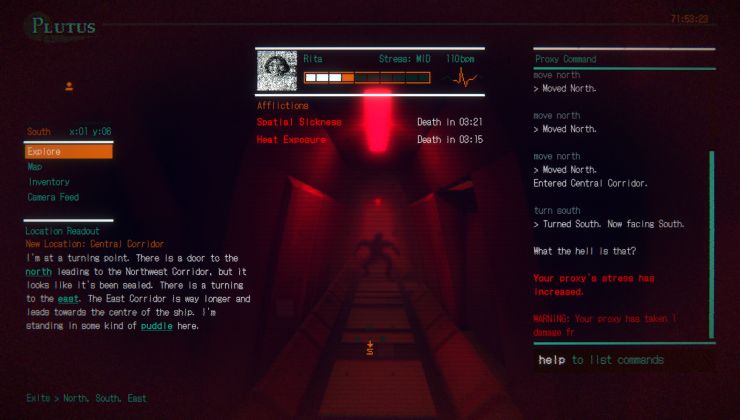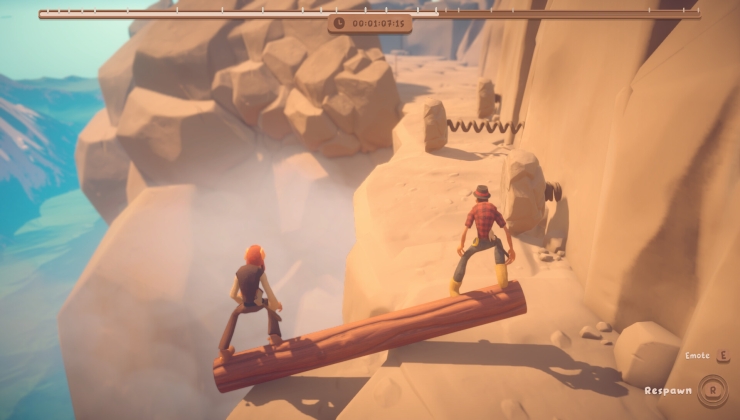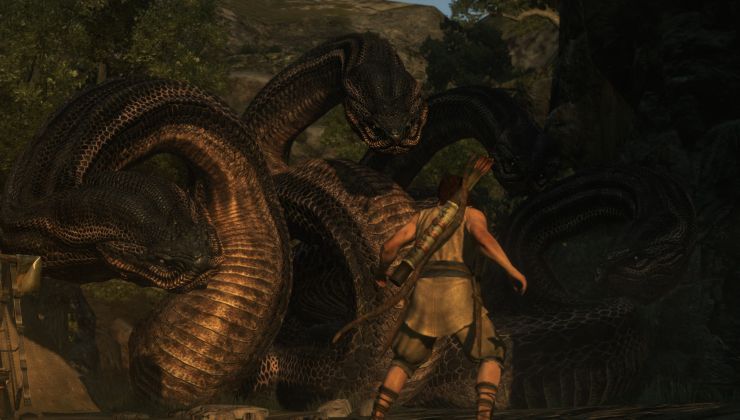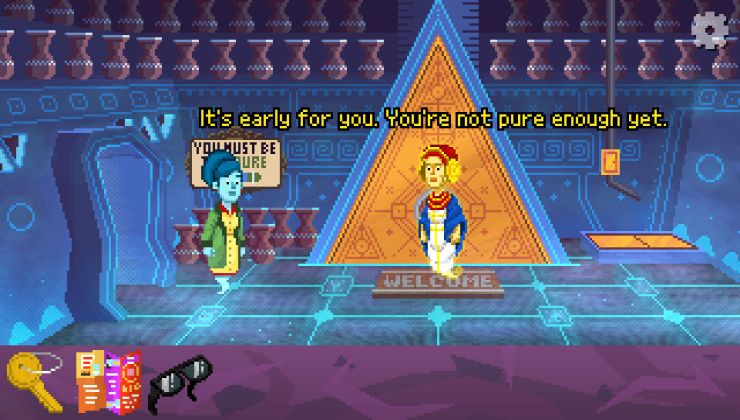Bazzite Linux has seen an upgrade to the just released Fedora 41, and with it comes lots of extra enhancements to their support of various PC gaming handhelds from AYANEO, ROG Ally and others.
What is Bazzite? It's "a cloud native image built upon Fedora Atomic Desktops that brings the best of Linux gaming to all of your devices - including your favorite handheld". Basically, it's a SteamOS-like based on Fedora that can turn your Windows handhelds into a smooth Linux device.
With the Bazzite F41 update they've got an updated Linux kernel v6.11 that includes patches for Ayaneo, OneXPlayer, Ayn, basic controller support for the MSI Claw and a whole lot more goodies. Some of these changes include:
- Speaker patches for Ayaneo Geek, Geek 1S, 1S, 2, 2S, Kun, Flip KB, Flip DS, and Ayn Loki MiniPro.
- Display quirks for Ayaneo Flip DS, Neo 2S, GEEK, Founder edition and Ayaneo 2.
- ROG Ally has a new patch that "selects the correct firmware for the Ally speakers, offering superior performance for users that used the incorrect firmware previously".
- OneXPlayer X1 and X1 Mini sensors driver updated with "support for charge limiting and charge bypass" plus allowing control of the Turbo LED.
- The MSI Claw also had support added to the "Handheld Daemon, where the front OEM buttons and the controller will work properly in Steam Gaming Mode". Lots of work still needed there though as there's plenty missing like TDP controls and back buttons.
Lots of background work on the Bazzite project as a whole too. Bazzite has grown massively recently, with even the likes of Digital Foundry giving it a spin showing how it can improve on the mess of Windows on handhelds:

Direct Link
See more in their announcement and official site.
Quoting: ZlopezI plan to create a PC console to use with my TV and Bazzite looks like a good choice for OS in that case.I tried Bazzite on my PC and it was not a good fit for me. It was great for gaming but the desktop experience was somewhat buggy, however on a couch PC that is less of a concern. Until SteamOS releases I would say Bazzite or ChimeraOS are the best we have for a console PC.
Quoting: kftXI wish it wasn't immutable so I could remove stuff I don't want like Lutris. That's the only thing stopping me from doing the Switch on my Steam Deck, really.That's Nobara basically. Have you tried it? They have a Steam Deck-build.
Last edited by Brokatt on 30 Oct 2024 at 12:40 pm UTC
Quoting: PyrateI've also been thinking about doing a console-style mini PC, even though its probably redundant to do so when I already have a Deck and a dock...I was thinking the same thing about getting a console-style mini PC for some time after owning the Steam Deck for a couple of years and recently decided to purchase a PC that was small enough to fit a low profile GPU because I wanted to play games that the Steam Deck struggled to run. That PC will end up using Bazzite on it since I hear good things about it even though I know that ChimeraOS and Nobara exist.
Quoting: BrokattI've been using Batocera recently on an old laptop I was givenQuoting: ZlopezI plan to create a PC console to use with my TV and Bazzite looks like a good choice for OS in that case.I tried Bazzite on my PC and it was not a good fit for me. It was great for gaming but the desktop experience was somewhat buggy, however on a couch PC that is less of a concern. Until SteamOS releases I would say Bazzite or ChimeraOS are the best we have for a console PC.
Quoting: kftXI wish it wasn't immutable so I could remove stuff I don't want like Lutris. That's the only thing stopping me from doing the Switch on my Steam Deck, really.That's Nobara basically. Have you tried it? They have a Steam Deck-build.
Gives a great console-like experience and very plug n play
Quoting: ZeloxHaving a desktop pc that just stood there with a decent amd gpu I wanted to put this pc in my living room. Sadly the install for Bazzite is so huge that it wouldn't fit on any of the USB's I have at home, I ended up with chimera OS instead, but that was a real pain to install also. I hade to clean format my hard drives, edit the install script and then I finally manage to get it installed. So if there is one who want so take the market by storm, just make an easy install. I will probably try Bazzite os again once they have some kind of install over the internet. Chimera was painful to install.I used a 16GB USB stick to create the installer for Bazzite and it worked perfectly fine when I tried it on a PC I recently purchased. You don't need anything more than a 16GB USB stick since the installer itself it about 10GB.
Actually, I haven't used Windows in ages. I should probably get rid of that dual boot partition soon...
Quoting: PyrateI've also been thinking about doing a console-style mini PC, even though its probably redundant to do so when I already have a Deck and a dock...I have a Deck and a dock too, but the resolution doesn't look great on TV and the Steam Deck is struggling with some games. So my idea is to build something more powerful, but still a small one.
Quoting: ZeloxHaving a desktop pc that just stood there with a decent amd gpu I wanted to put this pc in my living room. Sadly the install for Bazzite is so huge that it wouldn't fit on any of the USB's I have at home, I ended up with chimera OS instead, but that was a real pain to install also. I hade to clean format my hard drives, edit the install script and then I finally manage to get it installed. So if there is one who want so take the market by storm, just make an easy install. I will probably try Bazzite os again once they have some kind of install over the internet. Chimera was painful to install.
Quoting: ToddLI used a 16GB USB stick to create the installer for Bazzite and it worked perfectly fine when I tried it on a PC I recently purchased. You don't need anything more than a 16GB USB stick since the installer itself it about 10GB.Just a heads up. Bazzite can be picky about what kind of USB stick you can use. It just refused to boot from my Kingston stick even though Kubuntu, Fedora and Windows 10 worked just fine on it. I went out and bought a Samsung stick and that one worked.
Quoting: BrokattI used a SanDisk USB stick and that one had no issues with writing the installer and booting it from the PC.Quoting: ZeloxHaving a desktop pc that just stood there with a decent amd gpu I wanted to put this pc in my living room. Sadly the install for Bazzite is so huge that it wouldn't fit on any of the USB's I have at home, I ended up with chimera OS instead, but that was a real pain to install also. I hade to clean format my hard drives, edit the install script and then I finally manage to get it installed. So if there is one who want so take the market by storm, just make an easy install. I will probably try Bazzite os again once they have some kind of install over the internet. Chimera was painful to install.Quoting: ToddLI used a 16GB USB stick to create the installer for Bazzite and it worked perfectly fine when I tried it on a PC I recently purchased. You don't need anything more than a 16GB USB stick since the installer itself it about 10GB.Just a heads up. Bazzite can be picky about what kind of USB stick you can use. It just refused to boot from my Kingston stick even though Kubuntu, Fedora and Windows 10 worked just fine on it. I went out and bought a Samsung stick and that one worked.
Quoting: ToddLI googled it and apparently it's just certain kinds of sticks. Didn't matter if I used Fedora Media Writer or Etcher. Anyway I didn't delve any deeper into it. I just bought another stick and went on with my life.Quoting: BrokattI used a SanDisk USB stick and that one had no issues with writing the installer and booting it from the PC.Quoting: ZeloxHaving a desktop pc that just stood there with a decent amd gpu I wanted to put this pc in my living room. Sadly the install for Bazzite is so huge that it wouldn't fit on any of the USB's I have at home, I ended up with chimera OS instead, but that was a real pain to install also. I hade to clean format my hard drives, edit the install script and then I finally manage to get it installed. So if there is one who want so take the market by storm, just make an easy install. I will probably try Bazzite os again once they have some kind of install over the internet. Chimera was painful to install.Quoting: ToddLI used a 16GB USB stick to create the installer for Bazzite and it worked perfectly fine when I tried it on a PC I recently purchased. You don't need anything more than a 16GB USB stick since the installer itself it about 10GB.Just a heads up. Bazzite can be picky about what kind of USB stick you can use. It just refused to boot from my Kingston stick even though Kubuntu, Fedora and Windows 10 worked just fine on it. I went out and bought a Samsung stick and that one worked.
Quoting: ToddLQuoting: PyrateI've also been thinking about doing a console-style mini PC, even though its probably redundant to do so when I already have a Deck and a dock...I was thinking the same thing about getting a console-style mini PC for some time after owning the Steam Deck for a couple of years and recently decided to purchase a PC that was small enough to fit a low profile GPU because I wanted to play games that the Steam Deck struggled to run. That PC will end up using Bazzite on it since I hear good things about it even though I know that ChimeraOS and Nobara exist.
Quoting: ZlopezAny mini PC recommendations? I'm looking for ready-made a little box, so not looking to build my own pc.Quoting: PyrateI've also been thinking about doing a console-style mini PC, even though its probably redundant to do so when I already have a Deck and a dock...I have a Deck and a dock too, but the resolution doesn't look great on TV and the Steam Deck is struggling with some games. So my idea is to build something more powerful, but still a small one.
Quoting: kftXI wish it wasn't immutable so I could remove stuff I don't want like Lutris. That's the only thing stopping me from doing the Switch on my Steam Deck, really.Just `rpm-ostree override remove <package>`. It's the same stuff as all the immutable Fedora variants.
Quoting: PyrateI've seen some people use those Lenovo ThinkCentre Tiny PCs for gaming and not sure if it matters to you, but that one has either an Intel i5 8500T or i7 8700T in it with a slot that requires a riser card for the GPU. The RAM and NVMe drives can be upgraded if you want to go beyond the default from whoever you buy it from.Quoting: ToddLQuoting: PyrateI've also been thinking about doing a console-style mini PC, even though its probably redundant to do so when I already have a Deck and a dock...I was thinking the same thing about getting a console-style mini PC for some time after owning the Steam Deck for a couple of years and recently decided to purchase a PC that was small enough to fit a low profile GPU because I wanted to play games that the Steam Deck struggled to run. That PC will end up using Bazzite on it since I hear good things about it even though I know that ChimeraOS and Nobara exist.Quoting: ZlopezAny mini PC recommendations? I'm looking for ready-made a little box, so not looking to build my own pc.Quoting: PyrateI've also been thinking about doing a console-style mini PC, even though its probably redundant to do so when I already have a Deck and a dock...I have a Deck and a dock too, but the resolution doesn't look great on TV and the Steam Deck is struggling with some games. So my idea is to build something more powerful, but still a small one.
Quoting: SamsaiWould the removed packages come back if a new Bazzite update is available and installed on the PC? I know that Steam Deck likes to reset any of the changes you make on the immutable portion of the OS.Quoting: kftXI wish it wasn't immutable so I could remove stuff I don't want like Lutris. That's the only thing stopping me from doing the Switch on my Steam Deck, really.Just `rpm-ostree override remove <package>`. It's the same stuff as all the immutable Fedora variants.
Last edited by ToddL on 30 Oct 2024 at 3:42 pm UTC
Quoting: ToddLWould the removed packages come back if a new Bazzite update is available and installed on the PC? I know that Steam Deck likes to reset any of the changes you make on the immutable portion of the OS.Nope, different kind of immutable. SteamOS fully swaps the root filesystem with a new image, rpm-ostree puts down a base image and then applies your overlays on top, including package removals and additions. So, you are fully free to install and remove packages as you need and want to, with the only caveat that if those packages cause conflicts, updates may fail to apply.
Quoting: SamsaiGotta say, this sounds kind of . . . mutable.Quoting: ToddLWould the removed packages come back if a new Bazzite update is available and installed on the PC? I know that Steam Deck likes to reset any of the changes you make on the immutable portion of the OS.Nope, different kind of immutable. SteamOS fully swaps the root filesystem with a new image, rpm-ostree puts down a base image and then applies your overlays on top, including package removals and additions. So, you are fully free to install and remove packages as you need and want to, with the only caveat that if those packages cause conflicts, updates may fail to apply.
Quoting: Purple Library GuyGotta say, this sounds kind of . . . mutable.Not really any more than functional programming being able to represent a changing state despite immutable values. Some people just don't have a good grasp of what immutability in this context means, because it definitely doesn't need to mean that nothing is ever allowed to change.










 How to setup OpenMW for modern Morrowind on Linux / SteamOS and Steam Deck
How to setup OpenMW for modern Morrowind on Linux / SteamOS and Steam Deck How to install Hollow Knight: Silksong mods on Linux, SteamOS and Steam Deck
How to install Hollow Knight: Silksong mods on Linux, SteamOS and Steam Deck